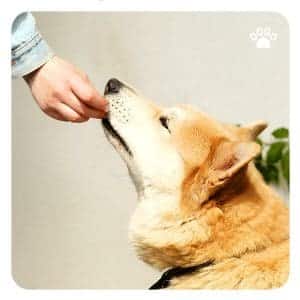What Can’t Dogs Eat?
As dog owners, we always want to ensure that our furry friends are happy and healthy. We take them on walks, play with them, and of course, feed them. While it’s easy to share our food with them, we need to be cautious about what we offer. Certain foods that are safe for humans can be harmful and even toxic to dogs. In this blog post, we will explore the foods that dogs should avoid and understand why it’s important to be mindful of what our canine companions eat.
Dogs are known for their voracious appetites. They often beg for food while we are eating, and it can be tempting to give in to those pleading eyes. However, it’s crucial to remember that dogs have different digestive systems than humans. Some of the foods that we consume regularly can cause adverse reactions in dogs. Chocolate, for instance, contains theobromine, a substance that is toxic to dogs. Even small amounts can cause vomiting and diarrhea, and in severe cases, it can be fatal. Grapes and raisins are also harmful to dogs and can lead to kidney failure. It’s essential to be mindful of what we offer our pets, even if they seem eager to try everything we eat.
Onions and garlic, commonly used in many human dishes, should be avoided when it comes to feeding our dogs. These ingredients contain compounds that can cause damage to a dog’s red blood cells, leading to anemia. Additionally, foods that are high in fat, such as fried or greasy items, can cause pancreatitis in dogs. This painful and potentially life-threatening condition can result in vomiting, diarrhea, and abdominal pain. While we may enjoy these foods, it’s crucial to remember that they can have serious consequences for our four-legged friends.
While many of us have heard that dogs can’t eat chocolate, there are other lesser-known foods that can be dangerous to them. Avocado, for example, contains a substance called persin, which can cause vomiting and diarrhea in dogs. Macadamia nuts are also on the list of foods to avoid, as they can lead to weakness, vomiting, and hyperthermia in dogs. Even the seemingly harmless xylitol, a sugar substitute found in many sugar-free products like gum and candy, can cause a dangerous drop in a dog’s blood sugar levels and lead to liver failure. It’s essential to be aware of these less obvious dangers to keep our pets safe.
As dog owners, it’s our responsibility to ensure that our pets have a balanced and healthy diet. While it can be tempting to share our meals with them, it’s important to remember that their nutritional needs are different from ours. While some human foods are safe for dogs, others can be harmful and even life-threatening. By being mindful of what we offer our furry friends, we can help them lead long, happy, and healthy lives.
In conclusion, while it’s natural to want to share our food with our dogs, it’s crucial to remember that not all human foods are safe for them. By understanding which foods to avoid, we can protect our pets from potential harm and ensure that they stay healthy. Being aware of the dangers of certain foods is an essential part of responsible pet ownership. Let’s show our love for our canine companions by being mindful of what they eat.[/fusion_text]




